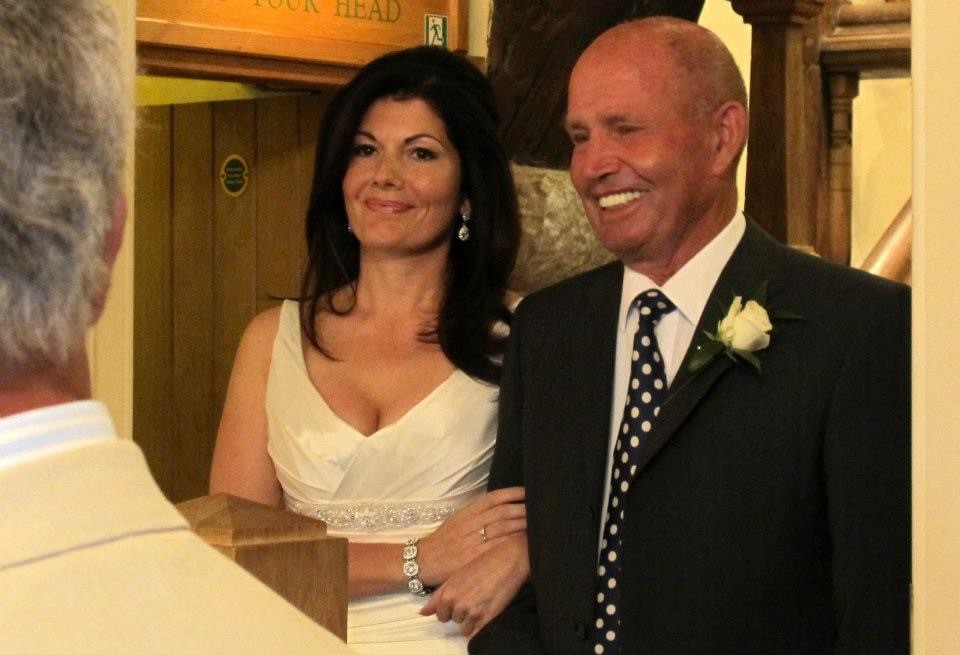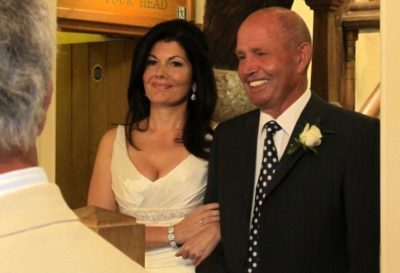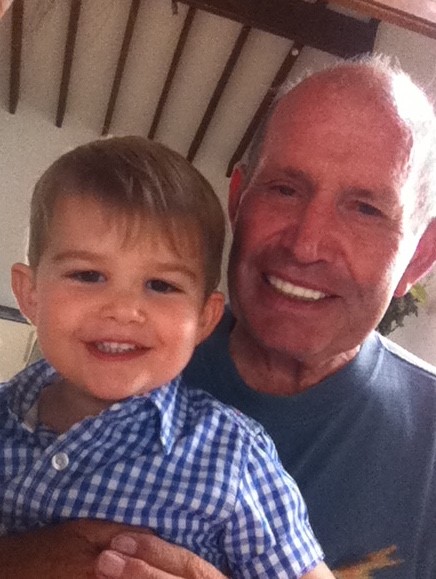



Early detection saved my dad’s life
Kerry’s dad has just celebrated his 80th birthday. That’s an incredible milestone at the best of times, but for Barry it’s nearly nine years after pancreatic cancer surgery. They didn’t think he’d get here.
Now, Kerry tells us more about her dad’s diagnosis, the road to recovery, and why she believes early diagnosis research is key to more people like her dad surviving.
“As I know only too well from losing my brother, pancreatic cancer is rarely hopeful, but we wanted to spread a little hope by sharing my dad’s story.
Dad became unwell in August 2012, I remember him saying that he didn’t feel very well (dad was never ill). He complained of digestive problems, feeling nauseous and had noticed a change in bowel habits. I urged him to see the doctor and while he was waiting for an appointment, he started to itch all over. I persuaded him to go to a walk in clinic where he was diagnosed with scabies.
He came away with a cream to bathe in. He then had a GP appointment a few days later with his own doctor, but because he had been diagnosed with scabies an examination didn’t take place and he was told to come back in a few weeks if the digestive problems continued.
A few days after that he was in the garden with Mum and it was when he was in the sunlight that Mum could see that his eyes were turning yellow. They went back to the doctors and after an ultrasound, he was diagnosed with pancreatic cancer.
I was 10 weeks pregnant when Dad received his diagnosis, and I honestly thought he would never see my son born. I’m not saying it was easy. After his Whipple’s surgery in the November, it was a long, hard road, but he not only saw my son born, but my daughter too, three and a half years later. He now plays golf twice a week (pre-lockdown!) and lives a full life, for which I am so grateful. In my dad’s case, it was indicated the best case scenario was that he would live for five years if the surgery was successful. He would have been so encouraged to hear that other people were living longer.
Aside from more symptom awareness among GPs – particularly as I now appreciate that itching and stomach problems are a clear indication of a problem with the or pancreas – research is everything for pancreatic cancer. I believe that early detection through the jaundice saved my dad’s life. That’s why research into early diagnosis is so important so more people like my dad are diagnosed early enough for surgery.”
As Barry’s story demonstrates, diagnosis of pancreatic cancer can often involve many visits to the doctors and possible misdiagnoses along the way. Around 80% of people with pancreatic cancer aren’t diagnosed until the cancer is at an advanced stage. At this late stage, surgery is usually not possible – and this is the only known treatment that has the potential to cure the disease.
Not only do we need to have the tools and knowledge to diagnose people at an earlier stage, but we also need to make the diagnosis process faster so that we don’t waste any precious time in moving people onto potentially life-saving surgery or other treatments.


Our committed and sustained investment in early diagnosis research means that we are nearer than ever before to significantly improving early diagnosis.
Through our Early Diagnosis Research Alliance and Early Diagnosis Workshop we have brought together the best minds in early diagnosis, bringing fresh new perspectives to address key challenges so that we can achieve earlier diagnosis in pancreatic cancer, faster.
There will always be improvements to be made in early diagnosis and so we also support early yet innovative approaches to early diagnosis through our Research Innovation Fund scheme that aims to transform early diagnosis in the long term.

